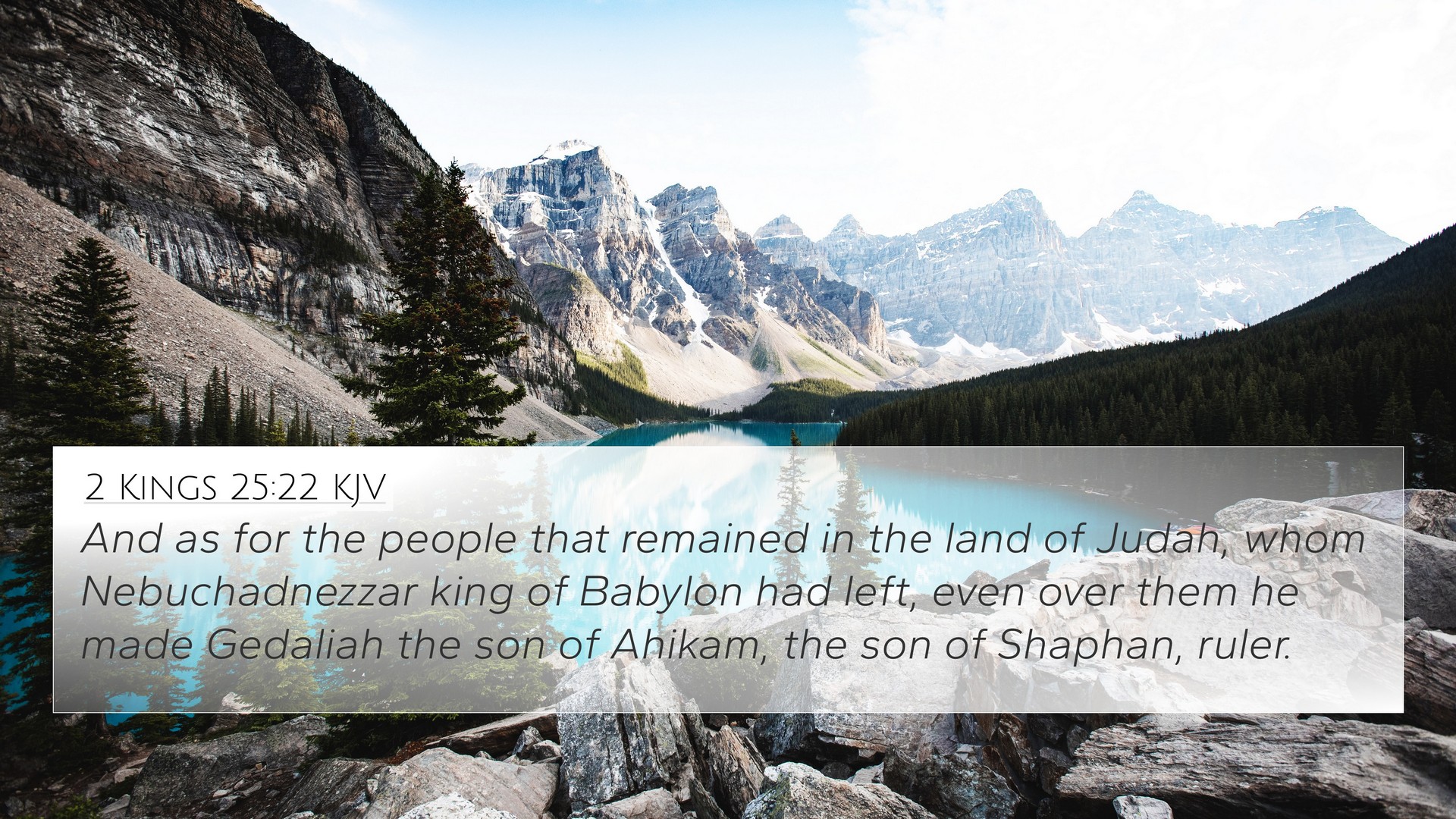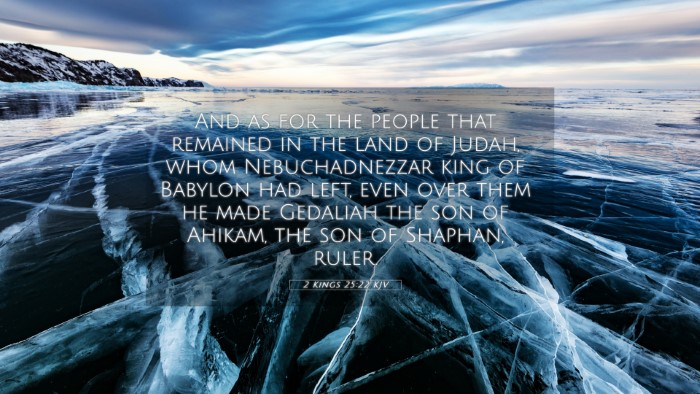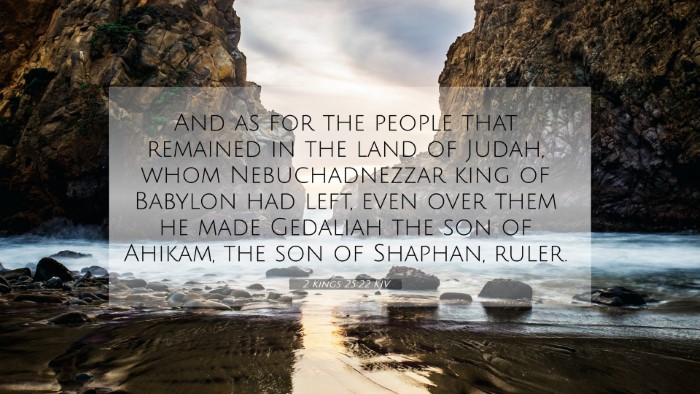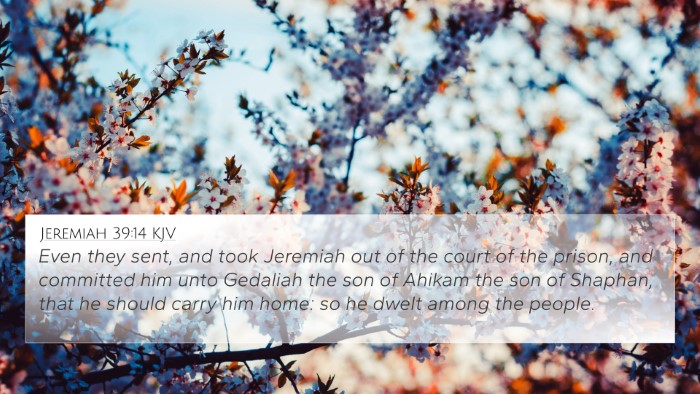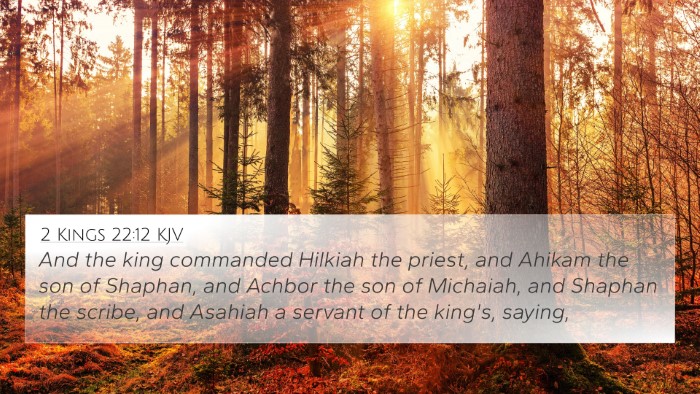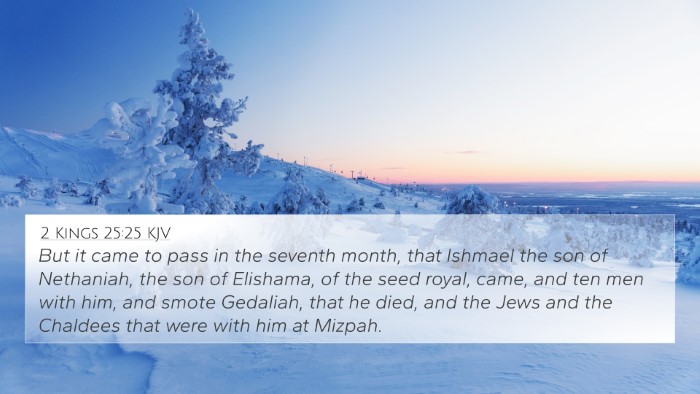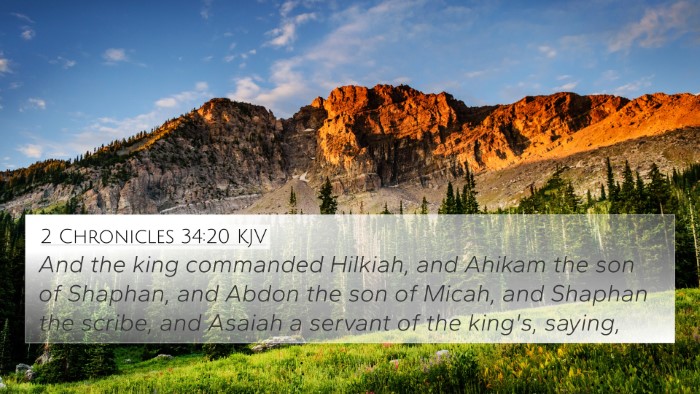Understanding 2 Kings 25:22
Bible Verse: 2 Kings 25:22 - "And as for the people that remained in the land of Judah, whom Nebuzaradan the captain of the guard left, there, the people, and the rest of the people, went to Babylon." (KJV)
Meaning and Interpretation
This verse highlights the significant aftermath of the Babylonian conquest of Judah, indicating the fate of the remaining people. The commentary from various sources provides deeper insights into its implications.
- Matthew Henry: Matthew Henry views this verse as a solemn reminder of God's judgment and the consequences of rebellion against Him. The exile signifies not just a physical removal, but a spiritual desolation where the chosen people faced the harsh reality of their disobedience.
- Albert Barnes: Barnes focuses on the administrative aspect of the Babylonian empire. He notes the careful organization with which the Babylonians dealt with the remnants of Judah, illustrating their authority and the weakened state of the people who remained in their homeland.
- Adam Clarke: Clarke emphasizes the hope amid despair. He suggests that although the people are left behind in a devastated land, there remains the potential for restoration and future return, as God has not entirely forsaken His people.
Thematic Connections
The themes of exile, judgement, and hope are prevalent in this verse and resonate throughout the Bible. It connects with several other scriptural references that reflect on similar subjects.
Related Bible Cross References
- Jeremiah 39:10: "But Nebuzaradan the captain of the guard left of the poor of the people, which had nothing, in the land of Judah, and gave them vineyards and fields at the same time." This verse supports the notion of a remnant being preserved.
- 2 Kings 25:12: "But the captain of the guard left of the poor of the land to be vinedressers and husbandmen." It illustrates the remnant's future role in the land.
- Isaiah 40:1-2: "Comfort ye, comfort ye my people, saith your God. Speak ye comfortably to Jerusalem, and cry unto her, that her warfare is accomplished, that her iniquity is pardoned." This passage expresses hope for the deliverance of God’s people.
- Lamentations 3:22-23: "It is of the Lord’s mercies that we are not consumed, because his compassions fail not. They are new every morning: great is thy faithfulness." Reflecting on God’s enduring compassion amid calamity.
- Daniel 1:1-3: Discusses the transition of some exiles to Babylon, providing context on the broader significance of the Babylonian exile.
- Ezekiel 11:16: "Therefore say, Thus saith the Lord God; Although I have cast them far off among the heathen, and although I have scattered them among the countries, yet will I be to them as a little sanctuary in the countries where they shall come." God's promise of a presence among his scattered people.
- Zechariah 1:16: "Therefore thus saith the Lord; I am returned to Jerusalem with mercies: my house shall be built in it, saith the Lord of hosts, and a line shall be stretched forth upon Jerusalem." A promise of restoration after exile.
Applying the Insights
When studying the Bible, it's essential to consider the context of passages and how they interrelate. In examining 2 Kings 25:22, we explore not just a historical moment but a continuous thread of divine narrative that resonates throughout scripture.
Cross-Referencing Bible Study Tools
Using tools for Bible cross-referencing can enhance our understanding of such verses. Here are some methods:
- Utilize a Bible concordance to find words and themes related to exile throughout the Old and New Testaments.
- Create a cross-reference Bible study, mapping connections between the verse and other relevant scriptures.
- Engage with comparative studies, analyzing how different authors in the Bible address similar themes, such as exile and restoration.
Conclusion
2 Kings 25:22 offers a glimpse into the consequences of Judah's rebellion against God while also hinting at future restoration. By understanding this verse alongside its related passages, we can gain a richer perspective on God's continual relationship with His people.
